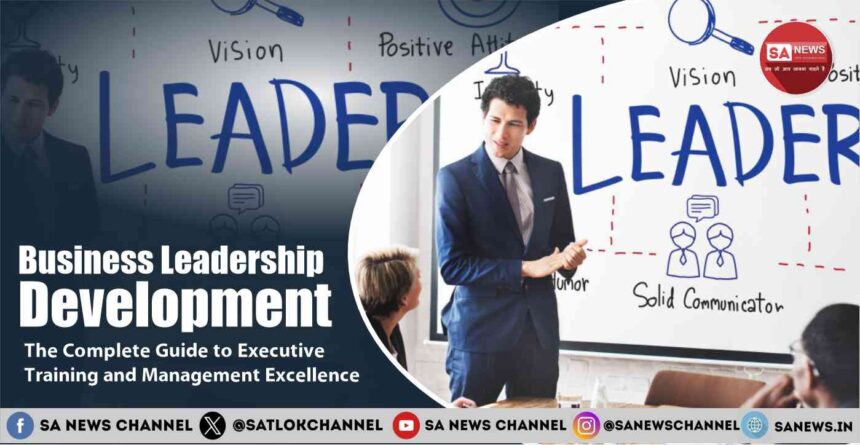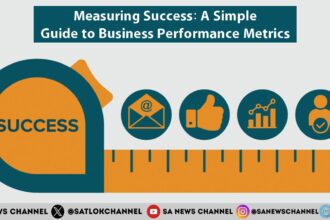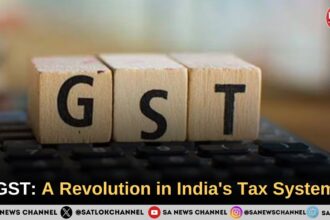Business Leadership Development: Imagine being a leader who not only keeps pace with rapid change, but also inspires teams, drives innovation, and balances tech and human values. By 2025, business has transformed: AI, remote work, purpose-driven culture, and ESG expectations demand new leadership models. Executives today need empathy, digital fluency, ethical judgment, and agility. This guide lays out best practices, real metrics, and leading programs so you understand how leadership development works—and why it matters.
- 1. Why Executive Training Matters More Than Ever
- 2. Key Trends in Leadership Development for 2025
- 3. Core Skills & Competencies for 2025 Executives
- 4. How Executive Training and Coaching Work
- 5. Leading Institutions & Innovative Programs in 2025
- 6. Choosing the Right Program: What to Look For
- 7. The Power of Coaching: Data & Real Examples
- 8. Ethical Leadership in an AI-Driven World
- 9. Emerging Frameworks & Theory: Agentic Leadership and Beyond
- 10. Talent Pipelines, Gen Z, and Succession Culture
- 11. Metrics & ROI: What the Data Shows
- Beyond Leadership: A Journey Toward Higher Purpose
1. Why Executive Training Matters More Than Ever
- 83% of organizations view leadership development as essential to success.
- Companies with leadership programs report 25–29% better organizational performance and higher retention (Keevee).
- Yet 77% of organizations still lack leadership depth across levels, while only 30% of employees believe their leaders are effective (exec.com).
- 71% of Millennials say they’d leave within three years if leadership development is missing (exec.com).
That gap between intent and execution explains why leadership development is now seen as a strategic investment—not just HR activity.
2. Key Trends in Leadership Development for 2025
Table 1: Top Trends Driving Modern Leadership Programs
| Trend | Why It Matters |
| Diversity, Equity & Inclusion (DEI) | 36% higher financial performance; innovation boost (thetmcg.com, LinkedIn) |
| Purpose & ESG integration | Aligns strategy with societal expectations (Talentsprint, hortoninternational.com) |
| Microlearning / just-in-time modules | Improves retention by 30%; fits executives’ schedules (Keevee, LinkedIn) |
| AI-powered coaching & simulations | Up to 20% faster skill acquisition; scalable support (exec.com, thetmcg.com, LinkedIn) |
| Integrated executive coaching | Bridges knowing-doing gap with action‑focused support (thetmcg.com, Financial Times, Harvard Business Impact) |
| Agile + human-centred leadership | Empathy, adaptability & trust in hybrid contexts (LinkedIn, Wikipedia, LinkedIn) |
| Reverse mentoring & intergenerational dialogue | New perspectives and inclusion, flatten hierarchies (The Times) |
3. Core Skills & Competencies for 2025 Executives
- Emotional Intelligence & Empathy: Empathetic teams outperform, with some reports showing 76% higher engagement and 50% lower turnover when leaders are empathetic (tagleaders.org).
- Cultural Intelligence and DEI: Ability to manage cross-cultural and inclusive teams is vital for global operations (Talentsprint).
- AI and Tech Literacy: Over 70% of business schools now teach AI strategy; leaders are actively embracing AI for decision-making (Financial Times).
- Agile Mindset & Adaptability: Leading with agility—including the ability to align and empower—in volatile environments is a survival skill (Wikipedia).
- Strategic & Purpose-driven Leadership: Embedding ESG metrics and aligning values with strategy boosts performance and trust (Talentsprint, hortoninternational.com).
- Self-awareness & Reflection: Ongoing coaching drives self-discovery and behavioral change—even at personal level (Financial Times, thetmcg.com).
4. How Executive Training and Coaching Work
Table 2: Typical Formats in 2025 Leadership Development
| Program Format | Features & Learning Methods | Best For |
| Blended/hybrid MBA or short course | Combines live virtual modules, occasional in-person residencies, case study labs | Mid-career professionals |
| Action-learning labs | Apply learning to real business challenges; team simulations | Strong ROI and change delivery |
| Executive coaching (1:1 + peer) | Sustained support for self-awareness and application | Senior leaders & transition roles |
| AI coaching tools + LLM chatbots | Instant feedback, scalable reflection, adaptive learning paths | Broad leadership upskilling |
| Microlearning / just-in-time tools | Short bursts of learning integrated into workflow | Busy managers, performance support |
Blended or hybrid formats now dominate: live sessions (virtual or on campus) layered with peer coaching, simulations, and AI-driven tools. Integrated coaching ensures learning transfers into real performance improvements. Pre‑ and post‑assessments, metrics, and business alignment track ROI (The Times of India, Wikipedia, thetmcg.com, LinkedIn, tagleaders.org).
5. Leading Institutions & Innovative Programs in 2025
- IMD (Switzerland): Executive Master’s in AI & Digital Business Transformation; Sustainable Business Transformation in April 2025 .
- Harvard Exec Ed: Certificate of Leadership Excellence in strategy, teams, innovation, digital fluency (Keevee).
- Wharton (UPenn): Advanced Management Program, CEO Academy®, Executive Development Program scheduled late 2025 (kornferry.com).
- India – IIM Lucknow: Blended two-year bMBA for mid-career professionals, mixing live online and on-campus terms, including capstone project (The Times of India).
- Hyundai ARISE Core Talent: India leadership program with IIM‑T and MDI Gurgaon: labs, simulations, cross-functional exposure; phase 2 into late 2026 (The Times of India).
- IIT Ropar ‘AI for Leaders’: Hybrid program (36 hrs online + 1-day onsite) covering prompt engineering, domain-specific AI use cases in business contexts (The Times of India).
Also features programs like Small Giants Academy’s Mastery of Business Empathy (MBE) emphasizing empathy-based decision-making alongside strategy and governance skills (Courier Mail).
Business schools globally (INSEAD, ESCP/OpenAI, Imperial, Iese) now embed AI modules, ethical leadership frameworks, and interactive simulations into core executive curricula (Financial Times).
Also Read: Business Sustainability Practices: 15 Proven Strategies to Future-Proof Your Company
6. Choosing the Right Program: What to Look For
- Alignment to Business Goals: Is the program designed to tie skills learning to measurable business metrics (e.g. productivity, retention, profitability)?
- Flexibility & Delivery Mode: Hybrid or modular? Does it fit your schedule and work commitments?
- Blend of Methods: Does it include live sessions, simulations, peer communities, and coaching?
- AI & Technology Integration: Are tools like chatbots, assessments, role-playing simulations built-in?
- Personalization: Are learning paths adapted to individual strengths, industry, or career stage?
- Longitudinal support: Does coaching extend beyond the program? Are there refresher modules?
- Measurement & ROI: Are pre-/post- assessments and KPIs built into the program?
7. The Power of Coaching: Data & Real Examples
- Coaching is now the third most sought-after career service among executive ed applicants. 71% say it’s essential to convert classroom learning into real behavior change (Financial Times).
- Business schools like Oxford, Esade, HEC Paris, and UPF Barcelona embed one-to-one coaching within their exec ed offerings to support reflection, behavior change, and real-world application (Financial Times).
- Example: Ariadna Masip Pablo at VW Spain enhanced team performance by using coaching to surface ideas and convert data insights into team action plans—leading to reduced stress and stronger leadership confidence (Financial Times).
Studies show coaching boosts performance outcomes, helps integrate learning, and enables leaders to transfer new practices into their daily routines.
8. Ethical Leadership in an AI-Driven World
- Business schools (e.g. INSEAD, ESCP/OpenAI, Imperial) embed ethical AI frameworks—tracking bias, privacy, human rights—to ensure leaders use tech responsibly (Financial Times).
- Academic frameworks emphasize fairness, transparency, sustainability in AI decisions—anchoring leadership in values alongside innovation (arXiv).
- Thought leaders like Kuruva Venkataramana Murthy will release AI-Driven Leadership: Adapt. Amplify. Accelerate. (Aug 2, 2025), blending ancient wisdom (dharma) with modern AI–leadership paradigms (The Times of India).
- C-suite roles like Chief AI Officer (CAIO) are now essential for integrating strategy, governance, and ethics in AI deployment across enterprises (arXiv).
9. Emerging Frameworks & Theory: Agentic Leadership and Beyond
- Agentic Leadership (Zaman, 2025): Positions AI as a leadership amplifier, enhancing empathy, transparency, collaborative autonomy and purposeful alignment through ten metaphorical “AI companions” (Wikipedia).
- Agile Leadership Models: Use frameworks that align and empower teams, developing environments where self-managing groups thrive under adaptable leaders (Wikipedia).
- Collaborative Leadership: Emphasizes partnerships, trust networks, and shared governance especially relevant for global supply chains and cross-sector alliances (Wikipedia).
- E‑Leadership: Leading teams virtually using media-rich communication, anonymous input tools, and technology-mediated influence—critical for remote-first enterprises (Wikipedia).
10. Talent Pipelines, Gen Z, and Succession Culture
- With Gen Z increasingly reluctant to take leadership roles (“conscious unbossing”)—1.7× more likely to reject management posts in favor of autonomy and mental health—companies must reimagine leadership ladders to appeal to new values (Business Insider).
- Organisations are introducing reverse mentoring, where junior employees mentor senior leaders to bridge generational and cultural gaps; this builds inclusion, empathy, and cross-generational understanding (The Times).
- Structured succession planning, tied to regular feedback and leadership academies, yields 2.5× higher leadership effectiveness (LinkedIn).
11. Metrics & ROI: What the Data Shows
- Leadership development increases organizational performance by ~25%, retention by ~29%, and profitability by ~21% in inclusive contexts (Keevee, exec.com, kornferry.com).
- Coaching adoption rises ~18% per year; integrated and AI-enabled coaching improves skill acquisition by up to 20% (Keevee, exec.com, thetmcg.com).
- Culture change through individual leaders: organizations focusing on high-impact executives instead of blanket training report more sustainable business outcomes (thetmcg.com).
- Microlearning boosts retention by 30%; coaching and integrated programs help prevent the common “forgetting curve” that erases 90% of learned skills within a month (Keevee, tagleaders.org).
This extended guide covers every angle: why executive training matters now, what skills leaders need, how coaching and AI fit in, where to find quality programs, what frameworks drive transformation, and how ROI is measured. Let me know if you want a deep-dive into any section or specific programs.
Beyond Leadership: A Journey Toward Higher Purpose
True business leadership development extends beyond corporate strategy and executive performance—it awakens deeper questions about our purpose, values, and the legacy we leave behind. As we train minds to lead organizations, we must also nourish the soul to lead a life of meaning. In times of uncertainty and transformation, turning to spiritual wisdom can offer profound clarity.
Books like “Gyan Ganga” and “Way of Living” by Saint Rampal Ji Maharaj present timeless truths about life’s ultimate aim, authentic worship, and the divine system governing our existence. For those seeking not just success, but significance, exploring these spiritual teachings can illuminate the path from worldly leadership to eternal fulfillment.









